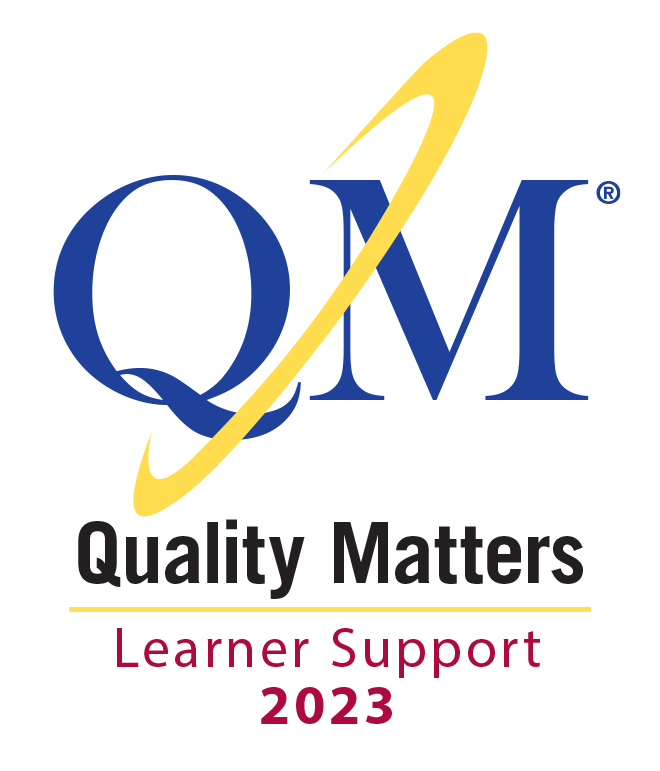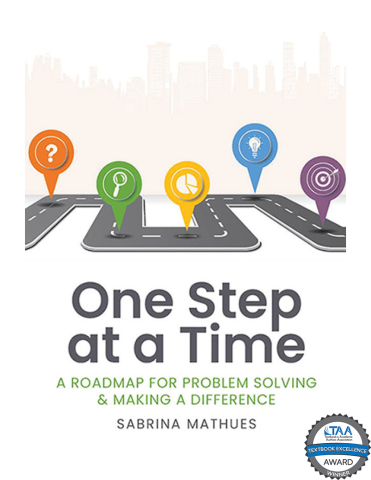Questions? Request Information
Drive the Future of Health Care Data
Health Information Management (HIM) is the practice of acquiring, analyzing, and protecting the medical information of patients. When you earn your health information management degree online, you’ll become skilled in the latest technology and understand the workflow of health care providers, from large hospital systems to private practices. Health care providers are required to keep their electronic patient records secure, creating a growing demand for individuals who can create and manage this process. They are vital to daily operations and managing electronic health records. With your health information management degree, you too can play a vital role in how the health care industry protects patient information.
As a HIM student, you will learn about the latest technology and understand the workflow of health care providers, from large hospital systems to private practices. You will gain the skills to become integral to daily operations and manage electronic health records. Upon completion of the Bachelor of Science in Health Information Management online degree program, you will be able to:
- Analyze health data structure, content, standards, clinical classification systems, and reimbursement methodologies
- Manage strategic planning and organizational development
- Compare and contrast health statistics, biomedical research, quality management, and performance improvement strategies used in health care
- Examine driving factors influencing health care organization, delivery systems, health care privacy, confidentiality, and legal and ethical issues
- Evaluate emerging applications in health informatics
- Evaluate emerging health care trends in information and communication technology, information systems, and data security
- Analyze the process of job analysis, staffing, appraisal and compensation, training, career planning, and organizational development
UAGC Award-Winning Curriculum
Military Students $250.00/credit
Undergraduate Courses $460.00/credit
Technology Fee** $115.00/course
Books and Other Class Materials** $125.00/average per course
Graduation Fee $150.00
Total Program Cost See UAGC Catalog¹
¹Keep in mind that this figure doesn’t factor in any potential discounts, partner benefits, or impact of accepted transfer credits, if eligible.

UAGC offers enrolled students access to ScholarshipUniverse, a platform that tailors external scholarship opportunities to your unique situation, making it easier to find and apply for scholarships.
UAGC is proud to provide reduced tuition rates for our academic and corporate partners, helping community college transfer students and corporate employees earn their degrees at a lower cost.


Health Information Management Curriculum Overview
Your Health Information Management degree program explores the technology and workflow that exists within healthcare providers, from large hospital systems to private practices. You will examine topics that include statistics, information systems, and telecommunications; and your program features two Professional Practice Experiences (PPEs), a combination of virtual activities and onsite supervised training within a healthcare facility.
To earn your Bachelor of Science in Health Information Management at the University of Arizona Global Campus, you must complete 120 credits. You must earn a minimum of 30 upper-division credits. Also, you must earn a minimum cumulative grade point average of 2.50 in all major coursework attempted at the University.
*In this program, 10 credits from the major may also satisfy General Education requirements.
In order to transfer credits for HIM courses (numbered 215 and higher) in the Bachelor of Science in Health Information Management program, the credits must come from a program accredited by the Commission on Accreditation for Health Informatics and Information Management Education (CAHIIM).
This program is not designed to meet the state educational requirements for a specific professional license or certification in any state. Students seeking licensure or certification in a particular profession shall carefully research the requirements prior to enrollment and regularly review the requirements as they are subject to change. Requirements vary by state. The University of Arizona Global Campus does not guarantee that any professional organization will accept a graduate’s application to sit for any exam for the purpose of professional certification. Further, a criminal record may prevent an applicant from obtaining licensure, certification, or employment in their field of study.
The Bachelor of Science in Health Information Management program is accredited by the Commission on Accreditation for Health Informatics and Information Management Education (CAHIIM). This program is aligned with the American Health Information Management Association (AHIMA) Curricular Competencies. As such, graduates of this program are eligible to sit for the national Registered Health Information Administrator (RHIA) exam. Prospective students are advised to regularly review the requirements for jobs in their intended field of employment, which are subject to change. Other factors, such as a student’s criminal history, may prevent an applicant from obtaining employment in this field.
Applicants to the Bachelor of Science in Health Information Management program are required to pay for, complete and successfully clear a Criminal Background Check (CBC) prior to enrollment into the program and a second CBC prior to site placement for their Professional Practice Experience (PPE), dependent on the practicum site requirements. Students will work directly with Sterling Infosystems, Inc. for their initial CBC; the approximate cost of each CBC will be $24.00. Applicants are advised that health care organizations (hospitals, home health agencies, clinics, and other types of health agencies) may require a background check for any student completing a professional practice experience as well as for employment.
If you undertake a HIM degree from UAGC, you will complete two Professional Practice Experiences (PPEs), one that is virtual and one that is a combination of virtual and onsite at a facility. As part of the second PPE embedded in the last class of the program, HIM 495, you will complete a minimum of 40 hours of supervised HIM tasks and projects at a nearby facility with the University’s approval. The 40 hours must be completed while you are enrolled in HIM 495. You can only complete your PPE in states where this program is available.
All students enrolling in a degree program with a PPE requirement are expected to complete the PPE in the United States. If you anticipate that you will not be able to complete your PPE in the United States, all exceptions must be approved prior to admission to the program.
Students who reside and/or work outside the United States may be ineligible to complete PPE hours at a facility abroad; requirements and restrictions vary by country. Students must notify the program chair prior to enrolling in the program to discuss a potential PPE location and obtain program chair permission to enroll.
The Online Teaching Support Certification recognizes programs that require all online faculty to undergo training in best practices for online course delivery, provide faculty with ongoing pedagogical support, encourage faculty professional development to increase their knowledge and skill in online teaching, emphasize instructor availability and feedback to learners, and collect and use feedback from learners to improve online teaching. Learn More

The Online Learner Support Certification recognizes programs that provide all the critical student and academic services needed for learner success and use learner feedback to continuously improve those services.

What Can I Do with a Degree in Health Information Management?
When you complete your bachelor’s in health information management, you will have what you need to begin a potentially rewarding career. Your degree in Health Information Management (HIM) could open the door to one of these opportunities:
- Clinical Data Manager
- Medical Records Coordinator
- Clinical Coordinator
If you successfully earn your AHIMA certification, you may be able to pursue of these careers:
- Health Information Administrator
- HIM Supervisor
- Implementation Support Specialist
- Document Imaging Supervisor
- Clinical Data Specialist
- EHR Implementation Specialist
- Credentialing Specialist
- Research Coordinator
- Customer Service Billing Representative
- Practice Workflow and Implementation Specialist
- DRG Validator
- HIM Revenue Cycle Auditor
- Quality Improvement Analyst
- Data, Application, or System Analyst
- Documentation and Coding Specialist
- Practitioner Consultant
- Clinical Documentation Improvement Specialist
Gain insights into the health information management job market by reviewing the Bureau of Labor Statistics market outlook report.
I looked at a lot of different institutions; however, the friendliness of the staff and knowledgeable advisors really steered me in choosing UAGC.
BS in Health Information Management FAQs
-
A BS in Health Information Management is an undergraduate degree that focuses on the effective management of patient health data and medical records. The HIM program at UAGC offers a comprehensive curriculum that covers health data management, information systems, and privacy and security.
-
Pursuing a bachelor’s in health information management may be a valuable investment in your future. As health care systems increasingly adopt electronic health records and other digital tools, the need for experts who can manage and protect this information is more critical than ever.
By enrolling in the online health information management degree program at UAGC, you are positioning yourself at the forefront of a dynamic field that combines health care, management, and information technology, opening doors to a variety of career opportunities you may pursue in diverse health care settings.
-
Your health information management degree online explores the technology and workflow that exists within health care providers, from large hospital systems to private practices. You will examine topics that include statistics, information systems, and telecommunications; and your program features two Professional Practice Experiences (PPEs), a combination of virtual activities and onsite supervised training within a health care facility.
-
Designed with the career-oriented professional in mind, this online health information management degree can provide you with the flexibility to continue with your current responsibilities while also going back to school. Attend classes when it’s convenient for you as you will have 24/7 online access to your course material. Take the next steps toward your professional career by pursuing your health information management degree online from the University of Arizona Global Campus.
See What Else UAGC Has to Offer
Questions? Request More Information
To access this rate using the Liberty Grant, only eligible undergraduate active duty service members, members of the National Guard, Reservists, spouses of active duty, members of the National Guard and Reservists, Department of Defense employees using Tuition Assistance (TA), and civilian employees of the United States Coast Guard (only if utilizing Military Tuition Assistance) will qualify.
**
The Technology Fee covers access to University systems such as the online classroom, the Student Portal, and other academic resources. The Technology Fee and the Course Digital Materials (CDM) Fee are fully refundable if a student does not attend beyond Day 3 of a course (Week 3 if covered under the University of Arizona Global Campus Promise Refund Schedule). After this time, the fee becomes non-refundable. Students are charged the Technology Fee for repeated coursework. Students are not charged the CDM fee for repeated coursework if previously charged.
†
The transferability of credits is subject to the University of Arizona Global Campus transfer credit policies and requires the submission of official transcripts. The official transcripts will be evaluated by the Registrar’s Office to determine the credits that will officially apply toward a UAGC degree program. Credits must be earned at the same degree level in order to be applied. Additional restrictions may apply. See the UAGC Academic Catalog for full undergraduate and graduate transfer policies.





